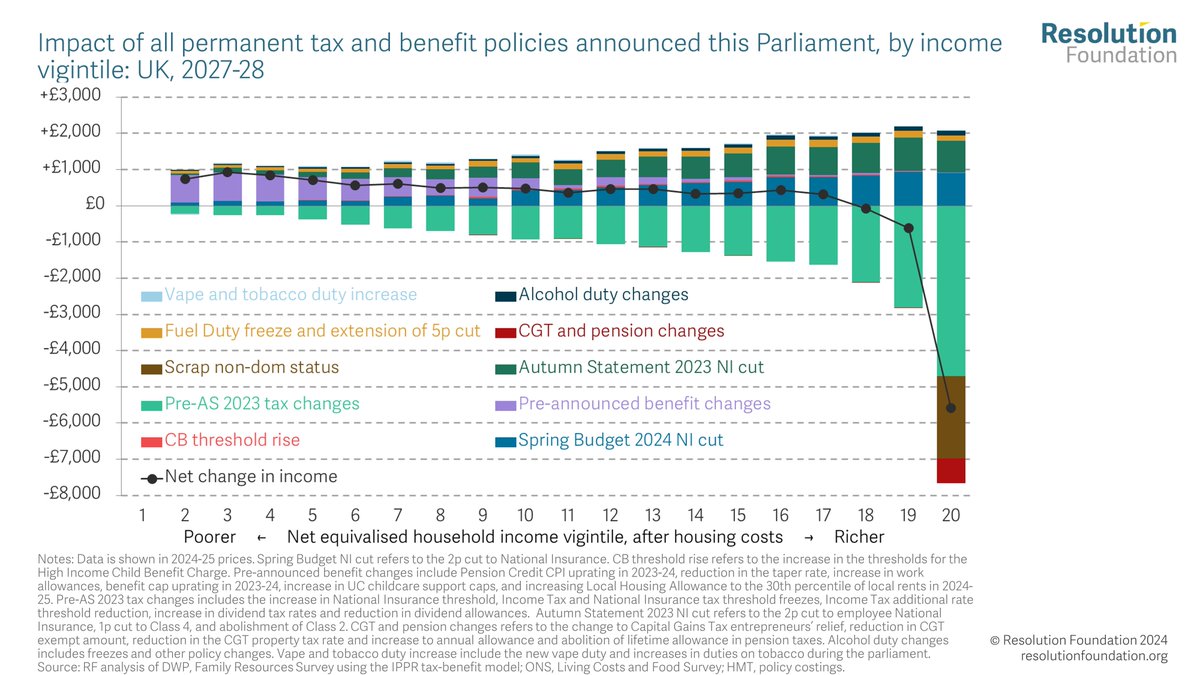Kicking off our presentation @asvalero notes that private sector firms are on the frontline in terms of navigating a decade of seismic economic change in the UK - from Covid and Brexit, to the net zero transition and rapid demographic and technological change... 

@asvalero The starting point for navigating this decade of economic change - an abysmal record on productivity... 

@asvalero Furthermore, this poor productivity record is widespread across the economy, ie not confined to a few sectors 

@asvalero While it is true that there is a huge gap between the most and least productive firms, this gap hasn't grown over the past decade and is comparable to other countries. So the UK's 'long tail' of unproductive firms are neither the cause, nor the solution, to our productivity woes. 

@asvalero As we note in our report, raising productivity among the 40 per cent of workers in low-productivity firms by 10 per cent would only raise overall productivity by 1.2 per cent.
@asvalero UK firms have not seen the same fall in dynamism that has been the case in the US economy. This should help the UK adapt to some of the structural changes it will face in the 2020s. 

@asvalero Instead, the key to addressing UK firms’ productivity woes is to focus on improving economy-wide inputs that firms use to drive growth: greater investment, more ideal, better management and higher skills. 

@asvalero UK firms input low levels of capital per worker - especially compared to France... 

@asvalero Management practices need to improve. Just 11 per cent of UK firms are as well managed as the best quarter of US firms. 

@asvalero Literacy among young people (aged 16-24) today is no higher than it is among older cohorts (aged 55-65) – a sharp contrast to the big generational improvements seen in France, Germany and the US, whose young cohorts have now overtaken the UK. 

@asvalero But while higher investment is need ed to boost productivity and ultimately living standards in the future, it does come with a trade-off - Higher investment must be financed by lower consumption or an increasing foreign debt 

@asvalero For more on the issues raised in this discussion, read the full report Business time: How ready are UK firms for the decisive decade?economy2030.resolutionfoundation.org/reports/busine… 

• • •
Missing some Tweet in this thread? You can try to
force a refresh














